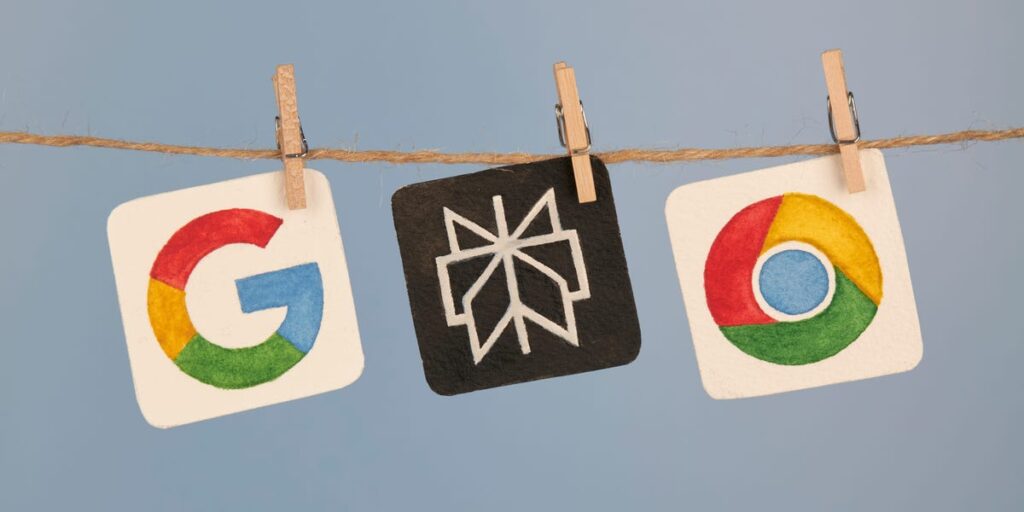Chrome is the world’s most popular web browser. But how much longer it belongs to Google is an open question.
A court last year ruled that Google had violated antitrust laws by maintaining a monopoly on internet search. A second ruling in April found Google also monopolized open-web digital ad markets.
The Justice Department asked a judge to force Google to divest its premier web browser to remedy the case. A court is expected to rule on that by the end of this month.
Chrome, a free web browser developed by Google, is an important distribution tool for Google Search and its other services. It also provides insights into users’ search habits and is the most popular web browser on the market.
Being forced to sell Chrome would be an undeniable blow to Google and its parent company, Alphabet Inc. Analysts at Barclays said such an action could be a black swan scenario for Google stock, sparking an estimated 15% to 25% decline.
Google denies it’s a monopoly. It said in a blog post in May that offloading the web browser to another party could render it “obsolete” and “expose billions of people to cyber-attacks.”
Although the judge has not yet decided Chrome’s ultimate fate, competitors are already lining up to gladly take it off Google’s hands.
Search.com
Search.com, an AI search chat platform, confirmed to Business Insider that it made a $35 billion bid for Chrome this week. JP Morgan and several private equity firms backed the bid.
Search.com is a division of the digital marketing company Public Good, which Ad.com acquired in July. Public Good President Melissa Anderson and Ad.com CEO Danny Bibi told Business Insider they reached out to Google on Wednesday.
“Given the number of worldwide users Chrome has, it’s a really just phenomenal way to scale user adoption,” Anderson said.
The pair said they’re committed to using AI ethically, which means offering its search for free in an effort to make knowledge accessible for all.
They also said Ad.com, founded in 1998, already has a network of clients, so finding potential advertisers wouldn’t be a heavy lift.
Perplexity
Perplexity, an AI search startup, made a $34.5 billion bid for the web browser this week. The company launched an AI-native browser, Comet, in July.
Although the bid is higher than Perplexity’s entire valuation, The Wall Street Journal reported that several investors have agreed to back the potential deal.
Perplexity said it would continue supporting Chromium, Google’s open-source web browser project that’s the foundation of Chrome, as part of the deal, according to the outlet.
The outlet reported that Perplexity would continue to keep Google as the default search engine, but users could change that through settings.
OpenAI
Although OpenAI’s ChatGPT turned it into the leading AI startup in Silicon Valley, the company is a tiny fraction of the size of a Big Tech mammoth like Google.
Purchasing Chrome, however, would help even the playing field.
During Google’s antitrust hearing in April, OpenAI’s head of ChatGPT testified that the company would be interested in acquiring Chrome if Google were forced to divest.
“Yes, we would, as would many other parties,” Nick Turley told the court, according to Bloomberg.
OpenAI CEO Sam Altman also recently said he’d be interested in snapping up Chrome.
“If Chrome is really going to sell, we should take a look at it,” Altman told a group of journalists on Thursday, according to The Verge.
Yahoo
Yahoo, a direct competitor of Google, would also be interested in bidding on Chrome, Bloomberg reported.
Brian Provost, the general manager for Yahoo Search, said Chrome is “arguably the most important strategic player on the web” during a hearing for Google’s antitrust case in April.
“We would be able to pursue it with Apollo,” Provost said, referring to Yahoo’s owner, Apollo Global Management Inc.
Read the full article here


